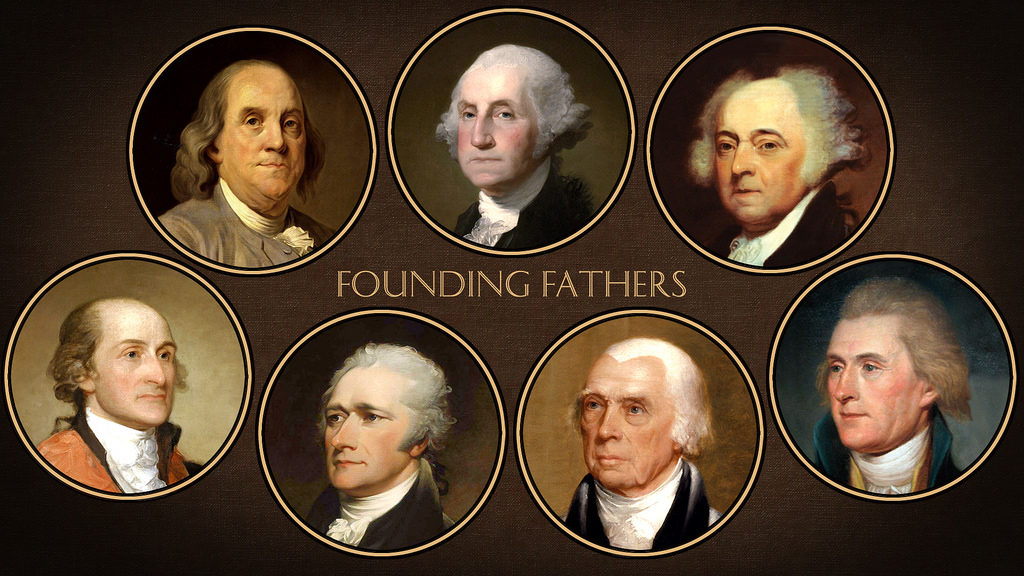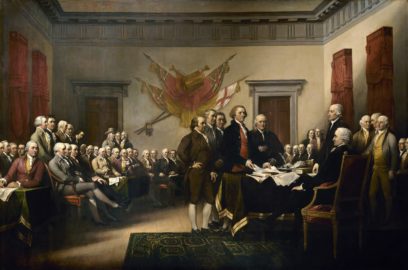By Don Radebaugh – The American experiment in democracy has proven exceptionally resilient over the centuries; in fact we know the United States is the longest enduring republic in world history.
If the creation of America is a foregone conclusion now, it certainly wasn’t during the tumultuous times of the American Revolution when a ragtag, untrained American military somehow, someway defeated the most powerful military superpower (at that time) on earth. Even if America could win the war, most experts were betting against the country’s subsequent survival.
There are arguably two founding moments in American history, the first being the Declaration of Independence in 1776 when our Founding Fathers declared independence from Great Britain, and the second when many of the same founders secured ratification of the Constitution in 1787-88, which officially gave birth to America.
Winning the war, often at the hands of sheer chance, pure luck and decisions, good and bad, made in the crucible of the moments, was miraculous enough, but creating a sovereign democracy that would, and did, stand the test of time, was quite another. Then of course there was the decade of the 1790s when several heated issues continually threatened the very survival of America during its infancy. The founders collectively understood that if they could get through the short-run gauntlet, the new nation had a chance to survive and one day thrive, ultimately reaping the benefits of a vast continent chock-full of natural resources.
It was also during this time that the two-party political system took root, which fortunately created the framework so that the heated arguments of the day could be debated in the decades to come…so that the arguments could continue without killing the country just as it was getting off the ground. Ironically, Founding Brothers who were on the same side of the arguments during the Declaration, now found themselves on opposite sides of political aisles. Were you for a strong centralized government bent on an industrial future? Or did you support a decentralized government with its base alloy in agriculture? Yes, the country had just fought a war against centralized political and military power, yet it was a strong central government in America’s origins that created the groundwork for survival during those precarious moments when the country was still gelling.
To say that the United States had issues to overcome during its creation is perhaps the biggest understatement in American history. Given all the obstacles, America’s survival is nothing short of a miracle, which makes the story all the more fascinating.
- First, no one on earth had ever established a republican government on the scale of the United States, and the overwhelming opinion of the most respected authorities of the day was that it just couldn’t be done.
- Second, the Declaration of Independence and the Constitution contradicted each other. The very idea that a government could rally around anything that even resembled centralized power went against every grain in the Declaration. In fact, centralized power was the very thing that America fought to free itself from during the Revolutionary War; yet it was also the thing that kept the country glued together in post-war years when it mattered most.
- Third, the states and regions that made up the new country had no common history as a nation or working together as a cohesive unit or force. When Founding Fathers referred to their native country, they were talking about the state they were from. When Thomas Jefferson was in Philadelphia drafting the Declaration he found it discomforting to be 300 miles away “my country,” meaning Virginia.
- Fourth, according to the first census, 700,000 inhabitants of the fledgling American republic were black slaves, more than 90 percent of which were concentrated in the south, so woven into the fabric of the southern economy that no politician of the day knew exactly what to do with the “peculiar institution” without destroying the American economy altogether, and with it, the American experiment. Whether Jefferson, who wrote, “All men are created equal” in the Declaration, was talking about white people only, remains an open question.
Having won the war, how did America survive, specifically through the tumultuous times following the Constitution, through the 1790s? Beyond taking the slavery question off the legislative table for future generations to deal with – the Civil War some 70 years later would ultimately settle it – a so-called bargain at the dinner table in June of 1790 between Alexander Hamilton and James Madison, at the home of Jefferson, would ultimately ‘seal the deal.’ What was that bargain? We’ll find out in a future episode here at HistoryMysteryMan.com. Thanks for tuning in.
@DonRadebaugh
Source: Founding Brothers, by Joseph J. Ellis, Copyright 2000

